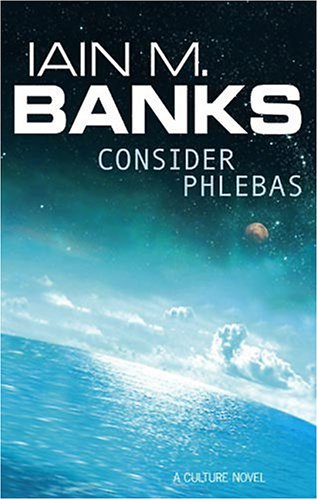
Consider Phlebas
The war raged across the galaxy. Billions had died, billions more were doomed. Moons, planets, the very stars themselves, faced destruction, cold-blooded, brutal, and worse, random. The Idirans fought for their Faith; the Culture for its moral right to exist. Principles were at stake. There could be no surrender. Within the cosmic conflict, an individual crusade. Deep within a fabled labyrinth on a barren world, a Planet of the Dead proscribed to mortals, lay a fugitive Mind. Both the Culture and the Idirans sought it. It was the fate of Horza, the Changer, and his motley crew of unpredictable mercenaries, human and machine, actually to find it, and with it their own destruction. Consider Phlebas - a space opera of stunning power and awesome imagination.
Reviews
Stephen Campbell@stephencampbll
Wynter@wynter
Gavin@gl
Bouke van der Bijl@bouk
Gillian Rose@glkrose
Pavonini@papaver
JP@byjp
Fraser Simons@frasersimons
Nat Welch@icco
Sunyi Dean@sunyidean
Ben Nathan@benreadssff
Carlo Zottmann@czottmann
Les Reynolds@lreynolds
Anne Keaky@annek
Max@ffitch
Eduardo Sorribas@sorribas
Simón Saint-André@nowis
iskrisis@krisa
Liam Richardson@liamactuallyreads
Catarino@catarino
Shane Segal@smsegal
mbbs@mbbs
Sherry@catsareit
Taylor Murphy@tayloramurphy